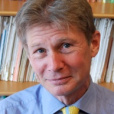蒂姆·戴森教授(Prof. Tim Dyson),倫敦政治經濟學院人口學家。
基本介紹
- 中文名:蒂姆·戴森
- 外文名:Tim Dyson
- 國籍:英國
- 職業:人口學家
- 代表作品:Population and Development
- 任教院校:倫敦政治經濟學院
- 學院:國際發展院
- 職稱:教授
人物經歷,研究方向,主要著作,
人物經歷
蒂姆·戴森(Prof. Tim Dyson)是英國一名人口學家。戴森教授從1980年開始任職於倫敦政治經濟學院(LSE)。他早年在英格蘭和加拿大接受教育,曾前往澳大利亞國立大學,國際人口科學研究所和美國貝魯特大學訪問交流。1994至1996年期間擔任英國人口學會主席,2001年被選為英國國家學術院院士。現為倫敦政治經濟學院國際發展學院教授。
研究方向
- 人口結構的時間序列;
- 種群之間的相互作用及其糧食供應;
- 全球食物前景;
- 印度次大陸人口的過去、現在和未來;
- 氣候變化;
- 社會科學的因果關係;
- 人口變化和民主化等。
主要著作
- (2013)On democratic and demographic transition,Population and Development Review, 38 (1). 83-102.
- (2012)Causes and consequences of skewed sex ratios,Annual Review of Sociology, 38. 443-461.
- (2011) 'The role of the demographic transition in the process of urbanization',Population and Development Review37, Issue Supplement S1: pp. 34-54
- (2010)Population and development: the demographic transition, Zed Books, London, UK.
- (2010)Growing regional variation: demographic change and its implications, in AnthonyF. Heathand Roger Jeffery (eds.)Diversity and Change in Modern India: Economic Social and Political Approaches. Proceedings of the British Academy(159), Oxford University Press / British Academy, Oxford, UK, 19-46.
- (2009) 'New evidence on child mortality in Iraq', Economic and Political Weekly XLIV(2):56-59.
- (2008) 'India's demographic transition and its consequences for development', in U. Kapila (ed.) India's Economic Development Since 1947, Academic Foundation, New Delhi, pp. 248-267.
- (2008) 'How to save a crowded planet: A review essay', Population and Development Review 34(3): 547-559.
- (2005) 'Why the world's population will probably be less than 9 billion in 2300' in United Nations Population Division,World Population to 2300, United Nations, New York, 2005:145-50.
- (2003) 'India's population - the past', 'India's population - the future', 'Migration and urbanisation: retrospect and prospects' (with Pravin Visaria) and 'Prospects for food demand and supply' (with Amresh Hanchate), all in T. Dyson, R. Cassen and L. Visaria (eds)Twenty-first Century India: Population, Economy, Human Development, and the Environment, Oxford University Press, 2004.
- (2003) 'HIV/AIDS and urbanization', inPopulation and Development Review29, no. 3:427-42, September 2003.
- (2003) 'Famine in South Asia', and'Food supply and population', inP. Demeny and G. McNicoll (eds),Encyclopaedia of Population,Macmillan Reference USA, 392-4, 431-5.
- (2002) 'Demography, food production and famine in the Twenty-first century' (with Cormac Ó Gráda) in S Devereux (ed)The 'New Famines' IDS Bulletin, 33, no. 4:108-13, October 2002.
- (2002) 'On the future of human fertility in India' Population Bulletin of the United Nations, United Nations, New York, forthcoming. Preliminary version inUnited Nations Expert Group Meeting on Completing the Fertility Transition(ESA/P/WP.172) March 2002. CP6-3 to 6-21; also inCompleting the Fertility Transition ESA/P/WP.172/Rev.1 June 2002:392-408.
- (2002) 'Famine in Berar, 1896-7 and 1899-1900: Echoes and chain reactions', in T Dyson and C Ó Gráda (eds)Famine Demography: Perspectives from Past and Present, Oxford University Press, Oxford, 2002:93-112.
- (2002) 'Introduction', (with Cormac Ó Gráda) in T Dyson and C Ó Gráda (eds)Famine Demography: Perspectives from Past and Present, Oxford University Press, Oxford, 2002:1-18.
- (2001) 'World food trends: A neo-Malthusian prospect?',Proceedings of the American Philosophical Society145, no. 4:438-55, December 2001.
- (2001) 'Demographic change and world food demand and supply - some thoughts on sub-Saharan Africa, India and East Asia', in R Ragaini (ed)Proceedings of the International Seminar on Nuclear War and Planetary Emergencies, 25th Session, World Scientific Publishing, Singapore, 2001:355-61.
- (2001) 'The preliminary demography of the 2001 census of India', inPopulation and Development Review27, no. 2:341-56, June 2001.

